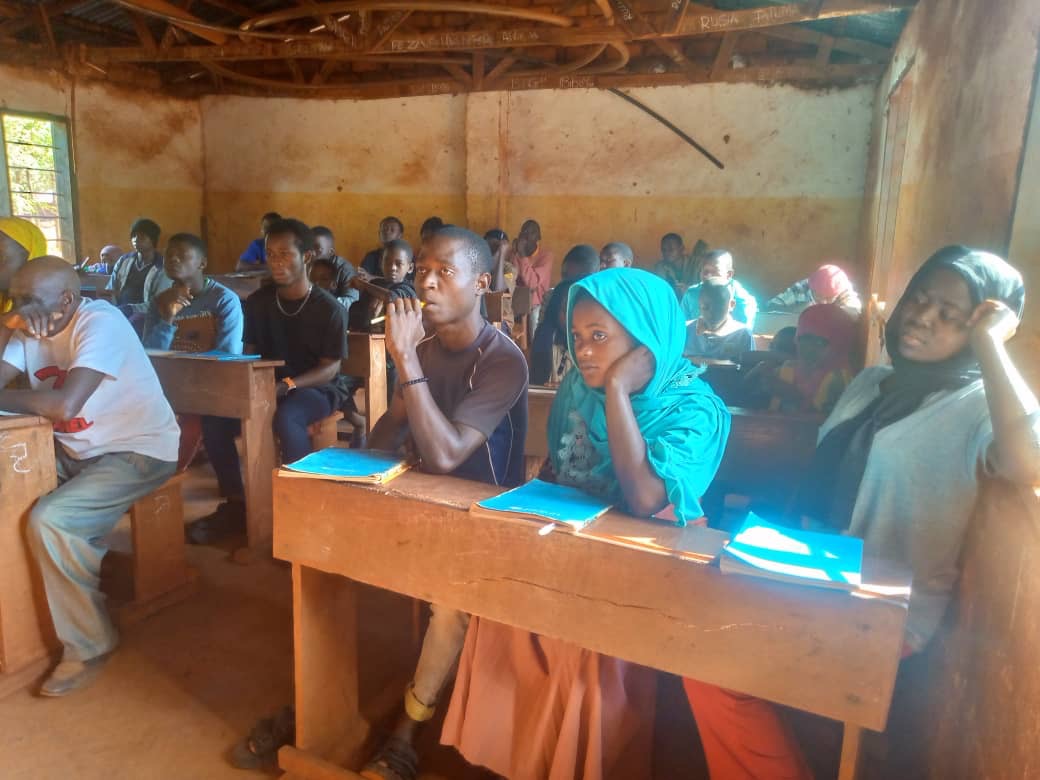In most organizations, success is measured in numbers like revenue, expansion, metrics that make for bold headlines and bright graphs. But in a refugee camp, where nearly everything is constrained by circumstance, success looks different.
At Equipping Hope International, we’ve spent the past several years walking alongside refugees in the Nyarugusu camp in western Tanzania. We’ve seen firsthand how long-term displacement challenges conventional ideas of progress. And we’ve learned to ask a different question: What does faithfulness look like here?
This is how we measure success. Not by scale, but by depth. Not only by data, but by dignity. Not by how fast we grow, but by how deeply we serve.
1. Completion, Not Just Enrollment
We care about how many students sign up for our programs. But we care even more about how many finish.
In a camp where daily life is full of obstacles including food shortages, illness, household labor, and uncertainty, simply showing up to class takes determination. That’s why we track completion rates, not just enrollment.
Our English and tailoring programs have some of the highest completion rates among similar offerings in the camp. This tells us our programs are not only accessible, but relevant, and that students feel a sense of ownership.
“Let us run with perseverance the race marked out for us.” — Hebrews 12:1
Finishing matters. Especially when the odds are against you.
2. Confidence and Capability
Many of our students enter our programs quietly. Some are young women who have been excluded from education or faced significant trauma. Others are young men who feel lost in a system where they cannot legally work.
We measure success when we see confidence return. When a tailoring student takes the lead in helping others. When an English student volunteers to read aloud. When graduates start asking how they can help teach the next class.
Success is capability paired with courage. When someone not only gains a skill, but begins to believe they can use it.
3. Community Multiplication
We believe in multiplication, not just addition. That means our programs aren’t designed to stop with one group. We build structures that allow graduates to become trainers, mentors, and leaders for the next wave of students.
Tailoring graduates helped teach and mentor the next class. English students have gone on to tutor others in their journeys. Our vision is a cycle of empowerment that sustains itself beyond our direct involvement.
When knowledge spreads, and ownership grows, we know we’re on the right track.
4. Gospel-Centered Transformation
Equipping Hope is not a skills-only organization. We are a faith-driven ministry, committed to discipleship through practical service.
We measure success in how we reflect Christ to the people we serve, not only in what we say, but in how we listen, teach, and partner. We want students to see God’s love lived out through accountability, integrity, and kindness.
“Whatever you did for one of the least of these brothers and sisters of mine, you did for me.” — Matthew 25:40
Success for us means planting seeds of spiritual hope alongside practical tools.
5. Sustainability, Not Dependency
It’s easy to measure short-term success by how much we give. But long-term success is better measured by how much people no longer need us.
When a tailoring graduate no longer relies on rations because she’s earning an income, that’s success. When an English student is admitted to university on scholarship, that’s success.
When former students become the backbone of our future programs, that’s the clearest mark of all.
Reimagining Impact in Hard Places
Impact in a refugee camp can’t be measured only by numbers. It must be measured by presence, consistency, and relationship. By whether or not we honor the image of God in each person. By whether the work continues.
This is how we define success.
With hope,
The Equipping Hope Team
